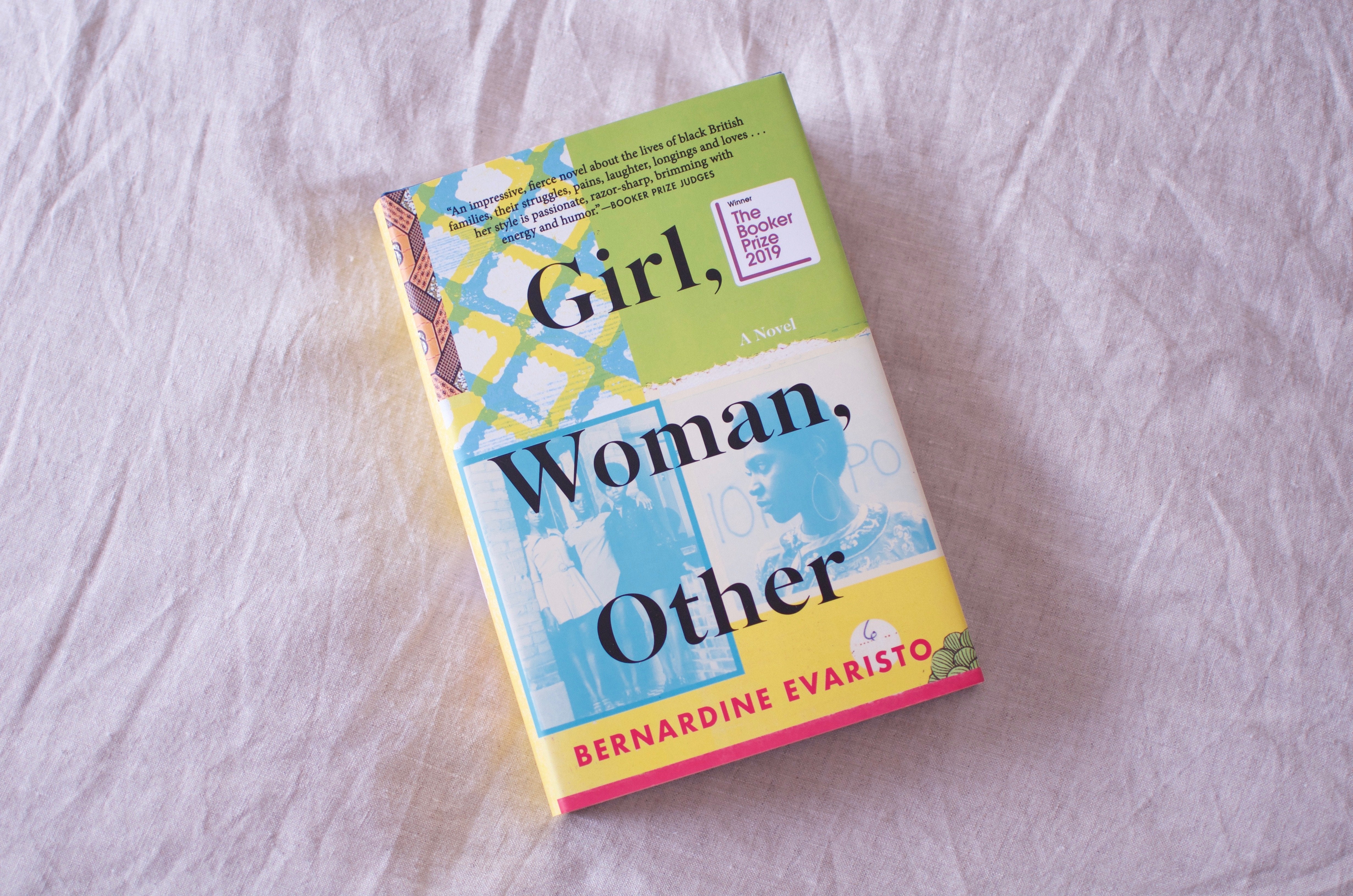
TOAST will be hosting a live discussion with Bernardine Evaristo and Jen Campbell on our instagram account. Visit TOAST Instagram at 3pm on Thursday 25th June to watch. Below, author Jen Campbell reviews Girl, Woman, Other for TOAST Book Club.
Girl, Woman, Other is a gloriously ambitious novel. We begin with Amma. She's opening her first play at the National, nervous about its reception, despite having written fifteen plays before and directing over forty. It has taken ten years for The Last Amazon of Dahomey to reach its audience, turned down by every company she sent it to as not being right for them'. And so we enter the theatre with her, weave our way backstage, look out at where the audience will sit where we will sit/are already sitting, watching this novel-play-poem dance across the page.
For Girl, Woman, Other commands the stage. It is split into four main acts, and each of these holds three voices. One girl, one woman, one other, and all of these labels interchangeable. In the first act, we bond with Amma, and in the same instance are introduced to a stream of characters who have made up the cast list of her life; the narrative baton is then passed to her daughter, Yazz, a whirlwind of cool; then Amma's best friend, Dominique swept up in an unhealthy relationship with a woman who wants to control her life.
In all, we are gifted twelve stories, twelve voices, and these twelve characters, mostly black, mostly women, are complex, messy, and attempting to navigate ever-changing landscapes. We witness their varied views on feminism, class, sexuality, race, gender across a hundred years, and this novel perfectly demonstrates how everyone is capable of justifying their behaviour to themselves, due to the narratives they form like houses, and the tools they have to hand or else, the tools they choose to reach for.

Girl, Woman, Other is able to access each character's subconscious, and therefore each time we meet someone new, we are forced to deconstruct what they know/don't know about the people we've already met. Through these soliloquys, we observe painful misunderstandings and family secrets, small rips that become galaxies, wishing we could just reach through the page, tap them on the shoulder, and beg: please listen to each other.
Time, theme, story: all of these things are fluid here, and so is the writing itself. Full stops appear very rarely, each line tipping into the next, with half-rhymes and staccato beats, a liquid layering of narratives reminiscent of Evaristo's debut, Lara, a semi-autobiographical novel in verse spanning 150 years and first published in 1997. I found it impossible not to stop and read sections of Girl, Woman, Other out loud, simply for the joy of hearing these words sing:
Living rooms became rehearsal spaces, old bangers transported props, costumes came from second-hand shops, sets were extracted from junk yards, they called on mates to help out, everyone learning on the job, ad hoc, throwing their lot in together
Yet, often the words deliberately do not sing. Winsome and Clovis, moving from Barbados to the Scilly Isles in the 1950s experience appalling racism: two monkey people arriving on [the] island', and Penelope, a white woman, bemoans that she will miss her two grandsons when they move to Australia, her two little monkeys', two phrases separated by forty five pages, one knifed, one tender, underlining the catastrophic power of words their weaponry. And in the present, Amma is sharing her weapons, her words, with her biggest audience yet, and that, she hopes, is power.
Girl, Woman, Other is truly a reading experience I will never forget. I closed the book and wanted to applaud. A week later, I've started reading it again. Encore, encore, encore.
This book club review was written by the author and poet Jen Campbell, whose latest book is The Girl Aquarium. Please share your thoughts and observations below for a chance to win a copy of Girl, Woman, Other by Bernardine Evaristo.
Add a comment